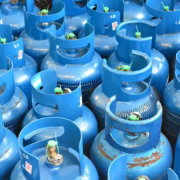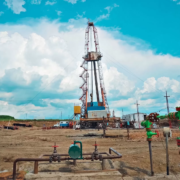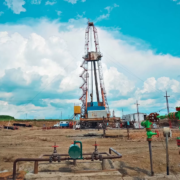How to Expand Your LPG Business in Tanzania: Navigating the Unseen Path
Let me ask you this: Why Tanzania? What’s pulling you toward it? If you’re not clear on that, you’re already behind. It’s easy to look at growth numbers and think, “Let’s expand.” But the real advantage is in understanding the details.
Here’s the truth about expansion: It’s not about ticking boxes, following market data, or copying others.
That’s how you end up as another faceless company competing on price. And trust me, that’s the worst game you can play.
Instead, let’s talk about finding opportunities others miss. The beauty of Tanzania is that, on the surface, it looks like a typical market—growing economy, rising energy demand. But the real value lies in the specifics, the things competitors overlook. That’s where you win.
- Understand the Regulations—But Don’t Stop There
Everyone knows you need to follow legal regulations to enter the Tanzanian market. And yes, you absolutely need to comply with the energy laws, licensing requirements, and environmental regulations. But here’s the kicker: If all you do is follow the rules, you’re doing the bare minimum.
In Tanzania, energy regulations for LPG are strict, and you must register with the Energy and Water Utilities Regulatory Authority (EWURA) to legally operate. Additionally, import permits and safety standards for storage and distribution are non-negotiable. But beyond the paperwork, there’s a whole other layer that people miss—the local customs and relationship-building that can make or break your entry.
Don’t just learn the rules—understand the system. You need to know how regulations are enforced on the ground and who the key players are in ensuring your business runs smoothly.
- Know the Invisible Rules
Legal regulations? Sure, they’re important. But there’s another set of rules that no one talks about—the unwritten ones. In Tanzania, relationships and trust are everything. That’s not in any market report. You don’t get into a market by just filing paperwork and getting permits. You get in by building trust with the right people, understanding cultural cues, and learning how things really work beyond the surface.
That means boots on the ground, not just at board meetings, but in communities. Don’t just hire someone to fill positions—hire the people who know the local landscape better than you ever could. Those relationships are your shortcut.
- The Competition is Sleeping—Don’t Make Their Mistake.
Most competitors will go in with a one-size-fits-all approach. They’ll import what worked in one country and assume it’ll work in Tanzania. They’ll overlook the specific needs of rural versus urban consumers, the unique infrastructure challenges, and—most importantly—the real demand.
But here’s the insight: the untapped potential is in educating your market. LPG isn’t always the default choice for households or businesses. Some don’t understand the benefits or how it compares to traditional fuels like charcoal or firewood. Competitors don’t bother explaining. You can.
You don’t just enter the market—you create it. Take the time to educate, run campaigns showing exactly why LPG is safer, more efficient, and ultimately cheaper than other options. Most businesses will skip this step, assuming the market already knows. Be the one who teaches them. That’s where the loyalty will come from.
- Build the Foundation Before the House
Before you even think about expanding, do one thing no one else is telling you to do: make it sustainable from day one. Most expansions crumble because they’re built on quick wins, not solid structures.
So, what does that mean for you? It’s not about just getting the product out there. It’s about laying down systems that will keep the business running long after the initial launch excitement dies down. It’s about operational consistency, and that comes from setting the standard from the start—every LPG refill, every delivery, every interaction with your customers should follow the same process.
Your competitors will wing it and course-correct later. You don’t have to. Build the framework before you lay a single brick. You’ll move faster because you won’t be constantly fixing mistakes or putting out fires down the road.
- The “Now” Factor: Speed Without Sacrificing Control
Speed is essential in business, but rushing? That’s dangerous. There’s a delicate balance you need to hit when expanding. Move too slowly, and you’ll be overtaken. Move too quickly, and you’ll lose control. In Tanzania, there’s a sweet spot. You want to hit the market with speed, but without leaving the important stuff behind.
Here’s how: Focus on minimal viable entry. Start small but start smart. Enter with just enough to test the waters, to build relationships, and to get your systems running smoothly. From there, you scale fast—but only when you’re ready. The key is to not overcommit in the beginning.
- Watch Out for the Comfort Trap
Here’s one of the most dangerous places you can find yourself: feeling comfortable. If things start going well early, you might think you’ve cracked it. But that’s when competitors start paying attention. The moment you think you’ve “made it,” someone else is studying you, planning how they can take your place.
Never stop being hungry. Your success in Tanzania isn’t about getting into the market—it’s about staying ahead, always innovating, always improving. If you’re comfortable, you’re vulnerable. Remember that.
Conclusion:
Create Your Own Rules Expanding into Tanzania isn’t just about following steps. It’s about being different, about seeing what others miss. It’s not about the perfect market entry strategy on paper—it’s about how you execute, how you move smarter, faster, and more deliberately than your competition.
The opportunity is there. Your competitors are looking at the same data, the same reports. But if you focus on what’s beneath the surface, you’ll be the one who succeeds where others fail.
So, don’t wait. Start moving now. Because in business, the only real failure is failing to act.









